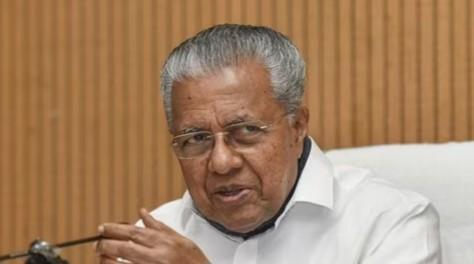
Attack on Federalism: Kerala CM on Bills to Remove Jailed PM, CMs
The recent move by the central government to table the Constitution (130th Amendment) Bill, 2025 in the Parliament has raised major concerns among state governments, with the Chief Minister of Kerala, Pinarayi Vijayan, being one of the strongest critics of the bill. Vijayan has described the bill as a “blatant attack on federalism and the rights of states”, and has accused the central government of attempting to “destabilise non-BJP governments by weaponising central agencies and jailing opponents on false charges”.
According to Vijayan, the bill seeks to remove Prime Ministers, Chief Ministers, and Ministers who have been arrested or detained for at least 30 days. This, he claims, is a clear attempt by the central government to muzzle the voices of opposition leaders and undermine the democratic process. Vijayan has urged the central government to reconsider its decision and instead work towards strengthening the federal structure of the country rather than undermining it.
The Constitution (130th Amendment) Bill, 2025, which was introduced in the Parliament on Monday, is a far-reaching piece of legislation that seeks to make significant changes to the manner in which political leaders are treated by the law. Currently, political leaders who are arrested or detained can continue to hold office, as long as their conviction is not yet final. However, the new bill seeks to change this by providing for the automatic removal of any political leader who is arrested or detained for more than 30 days.
Vijayan, who was speaking in the Assembly, also highlighted the potential implications of the bill, saying that it would create a “fear psychosis” among opposition leaders and undermine the democratic process. He also accused the central government of attempting to “bypass the Constitution and the law of the land” in its quest for power.
The Kerala Chief Minister’s criticism of the bill is not limited to its potential impact on the democratic process. He also claims that the bill is a clear attempt by the central government to “appease its political allies” and “reward its political cronies”. Vijayan pointed out that the bill does not make any provision for the removal of political leaders who are found guilty of corruption or other serious crimes, and instead, seeks to remove them simply for being arrested or detained.
The move by the central government to table the Constitution (130th Amendment) Bill, 2025, has been met with widespread criticism from opposition parties, who have accused the government of attempting to “dictate to the states” and “undermine the federal structure” of the country. The Congress, for example, has described the bill as a “clear attempt by the central government to grab power and undermine the democratic process”.
The All India Muslim Personal Law Board (AIMPLB) has also come out in strong opposition to the bill, describing it as a “clear attempt by the central government to destroy the secular fabric of the country”. The AIMPLB, in a statement, urged the people to “rise up in opposition to this bill and protect the democratic process”.
The move by the central government to table the Constitution (130th Amendment) Bill, 2025, has also raised concerns among human rights groups, who have accused the government of attempting to “muzzle the voices of opposition leaders and undermine the democratic process”. The National Human Rights Commission (NHRC), for example, has urged the central government to “rethink its decision and instead work towards strengthening the democratic process rather than undermining it”.
In conclusion, the move by the central government to table the Constitution (130th Amendment) Bill, 2025, has raised major concerns among state governments, opposition parties, and human rights groups, who have accused the government of attempting to “destabilise non-BJP governments by weaponising central agencies and jailing opponents on false charges”. The bill, which seeks to remove Prime Ministers, Chief Ministers, and Ministers who have been arrested or detained for at least 30 days, has been described as a “blatant attack on federalism and the rights of states”, and has raised major questions about the government’s commitment to the democratic process.






